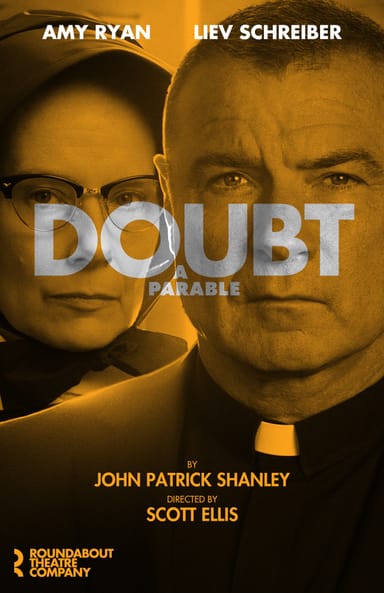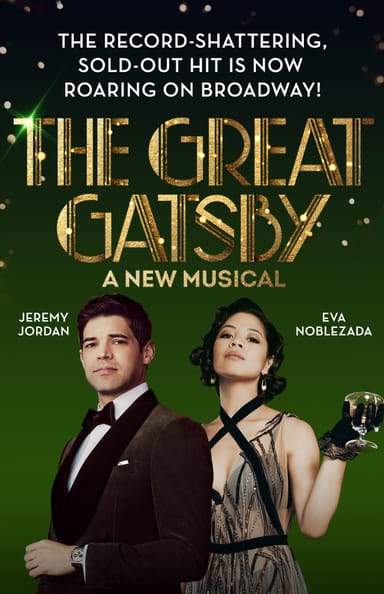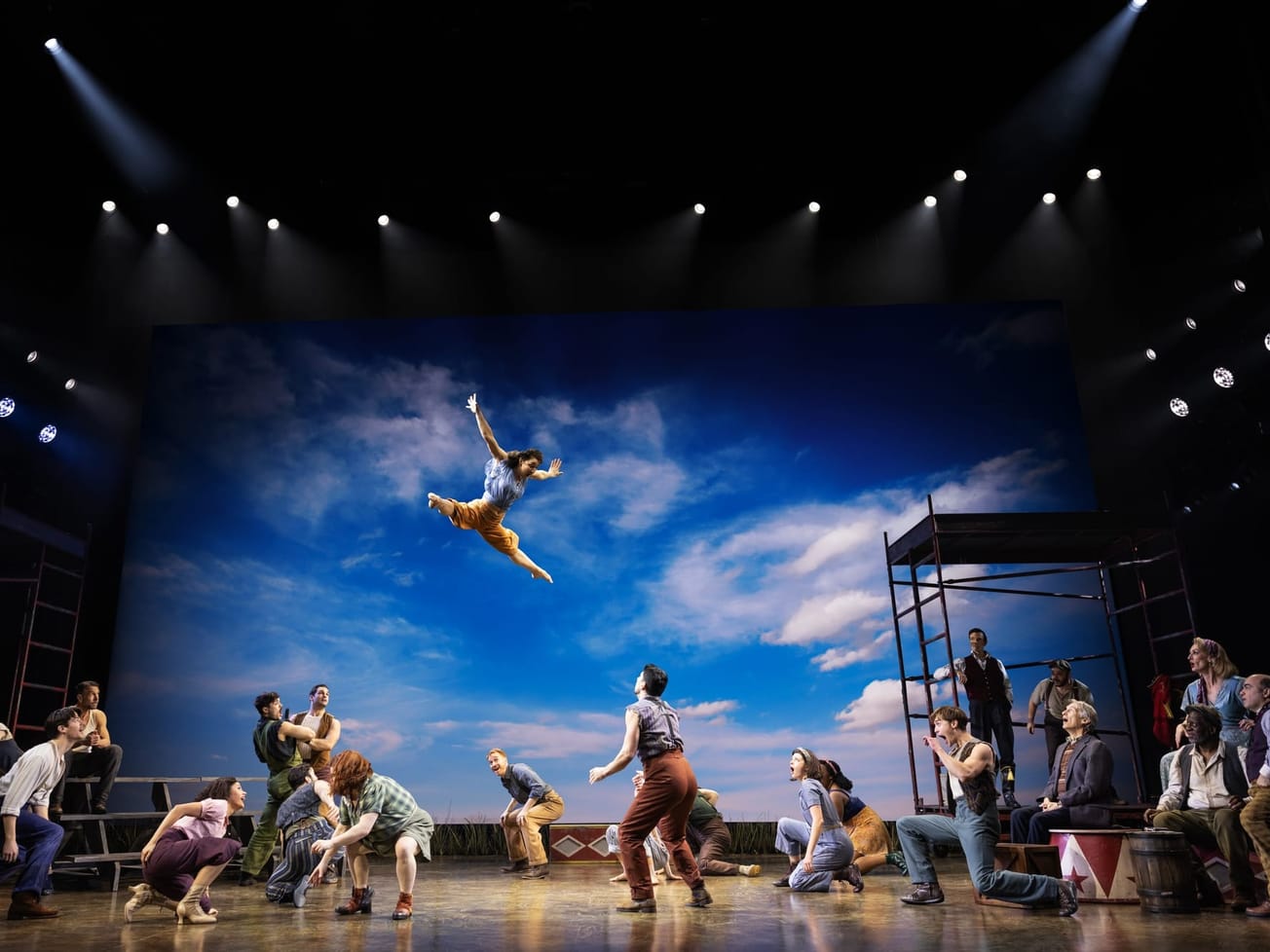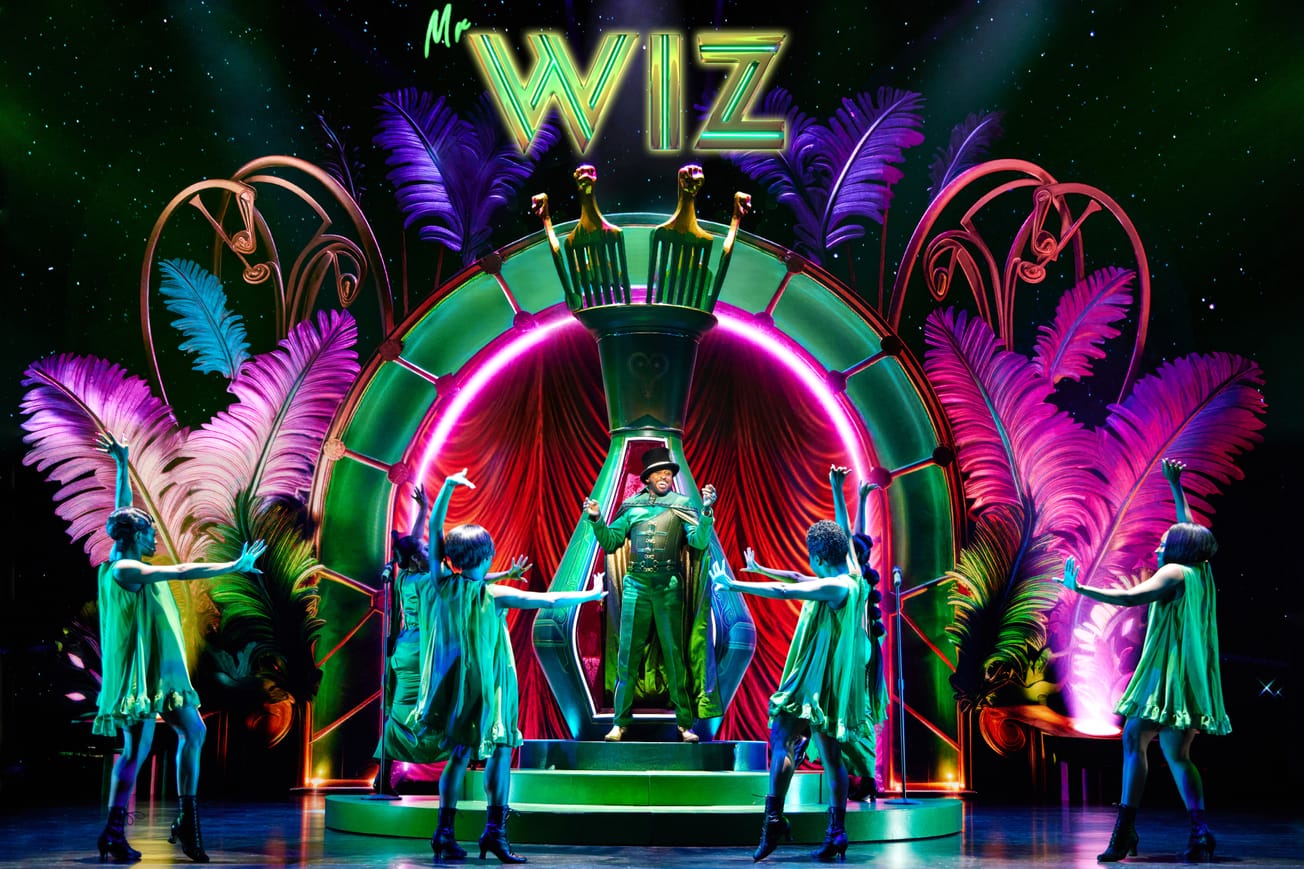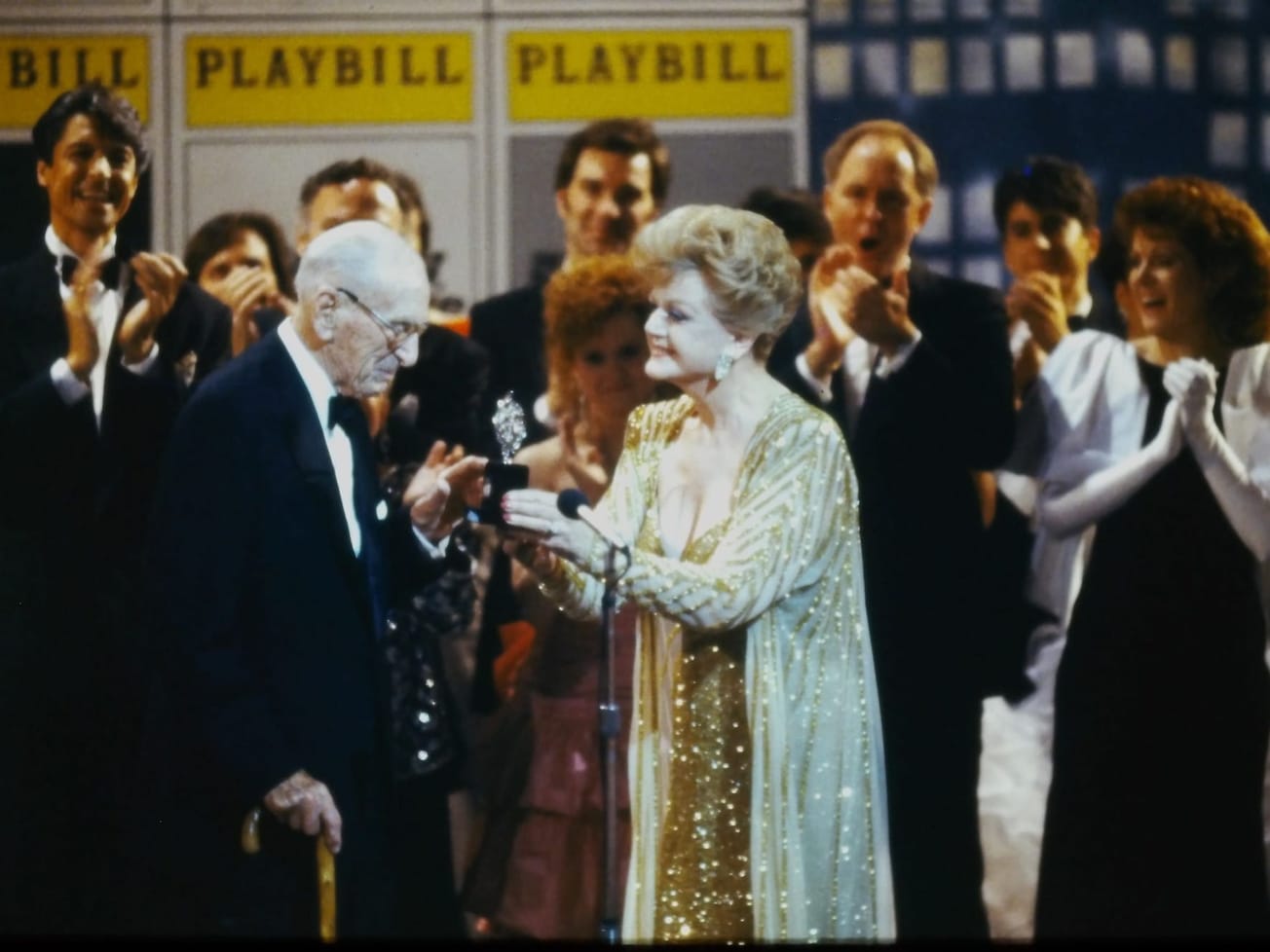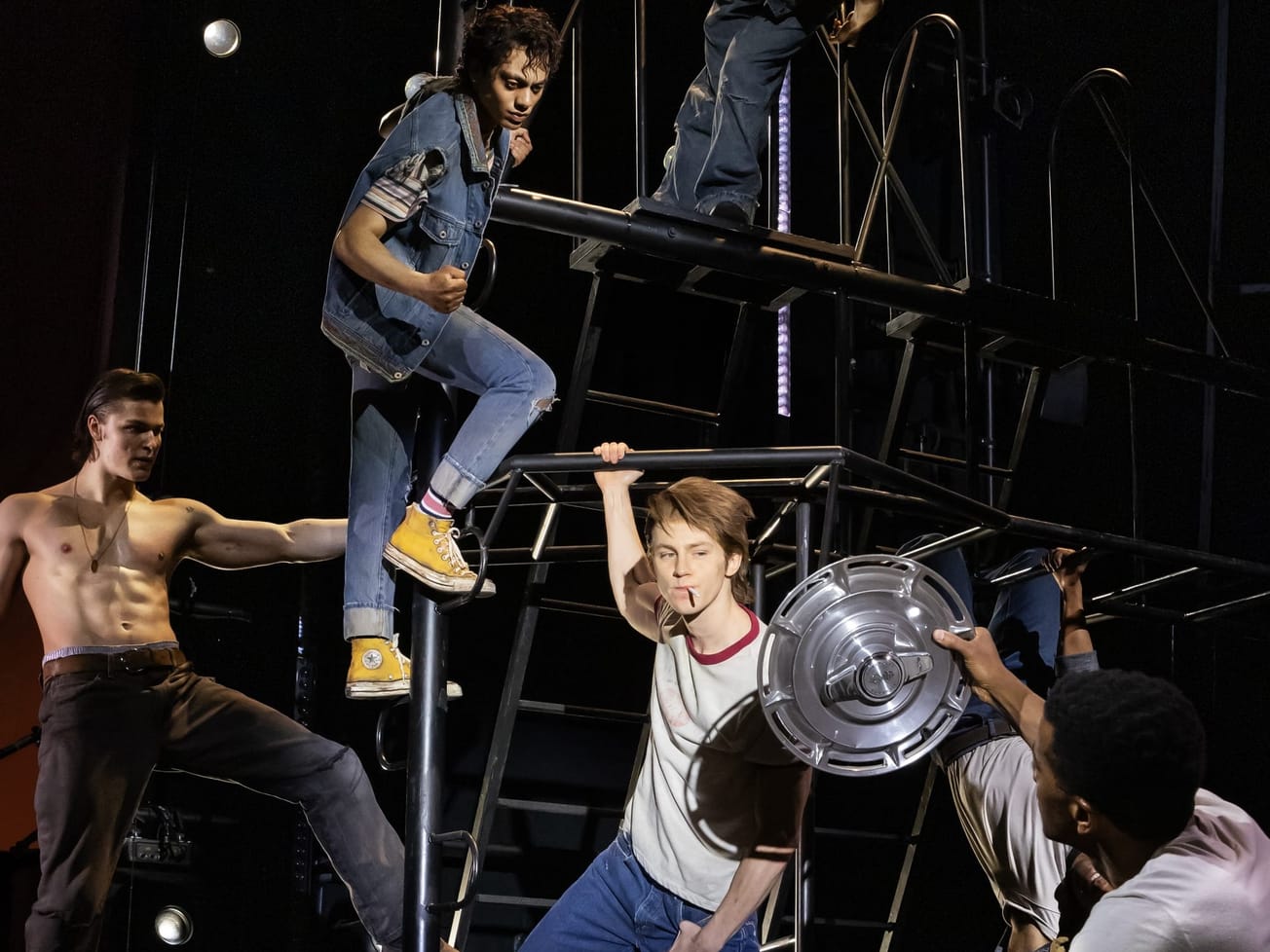On Nov. 17, members of Actors’ Equity Association gathered in Times Square to express support for colleagues currently in negotiations with The Broadway League. In contention is the contract that governs Broadway productions as well as Broadway League-produced sit-down shows in other parts of the country. The negotiations between the two parties began in September.
Equity’s director of organizing Stefanie Frey led the rally, backed by union members, including actors Gavin Creel and Maria Briggs, each of whom spoke. Frey introduced additional speakers, including Erin Maureen Koster, stage manager and third vice president of Equity’s National Council; Mario Cilento, president of the New York State American Federation of Labor and Congress of Industrial Organizations (AFL-CIO); Vicki Whooper, “A Strange Loop” sub stage manager; and Brendan Griffith, New York City Central Labor Council chief of staff.
The rally coincided with “#ItsAboutTime,” a campaign that began circulating last week on social media; numerous Equity members — including actors Stephanie J. Block, Phillipa Soo and Kara Young — posted the hashtag and corresponding graphic in solidarity.
In an in-depth interview with Broadway News prior to the rally, Creel said of the slogan, “It’s that double entendre: We’re fed up — there’s our frustration in that It’s about time, people, let’s do this — but it’s also literally about time.”
Members have spoken out about their desire for the new contract to update terms in three major areas: 1) coverage (standbys, understudies and swings), 2) scheduling and 3) safety.
Briggs is a swing and understudy with “The Music Man,” as well as the show’s dance captain. Through a bullhorn at the Nov. 17 rally, she shared: “I cover 11 tracks. I have done 55 versions of this show. Ten of them have been single tracks and 45 of them have been split tracks.”
A split track describes when a single performer plays different tracks (aka roles) in a single performance. To simplify greatly: A swing might be Woman #1 in the opening and closing, but Woman #2 the rest of the show.
“How much would you pay someone in your field to be able to cover 10 positions and jump in at any moment?” Briggs asked.
“I’m asking for appropriate and fair compensation from the League. I am also asking for appropriate coverage so my onstage castmates don’t feel the pressure that we will lose their representation if they call out,” Briggs continued, getting choked up. “I love my job. I really do. But I’m so tired of seeing others and myself being taken advantage of.”
Many hope the new contract will provide much more coverage in the forms of additional swings and understudies so that each performer covers fewer tracks, and so productions can avoid these adjusted, split-tracked shows. “We do almost more adjusted shows than we do regular shows,” Creel said of “Into the Woods.” The Broadway veteran hopes that, say, if there are four onstage covers (actors who perform in the ensemble but cover a principal role), there are at least four offstage swings (people who cover ensemble tracks). His ideal is “from day one, having the appropriate number of people so that we are never doing split tracks.”
In the realm of stage management, coverage is not built into the company of the show currently. Stage managers (who are also members of Actors’ Equity) rely on a pool of subs that circulate the industry. “Right now, the way it’s structured is: Once the show is locked and opened, we can start interviewing for subs to come in to shadow the deck track, shadow the calling of the show,” Whooper told Broadway News. Whooper recently left a full-time position as assistant stage manager with “A Strange Loop,” but remains a sub. “A big success [in this negotiation] would be having at least two subs that we can start training at tech or even if there was a world in which a PA bumps up to a sub at that point in the process.”
From a scheduling standpoint, union members called to reclaim their time from overly demanding work hours. “People think, from the audience point of view, ‘It’s three hours a night, what a wonderful job,’” Creel told Broadway News. “But for the majority of us, and especially for our stage managers and our dance captains and our swings and understudies, you get your Monday off, Tuesday afternoon off — unless they have to call an emergency rehearsal — then you [work] Tuesday night, both shows Wednesday, Thursday rehearsal and Friday rehearsal plus shows, both shows Saturday and a matinée day Sunday.”
Members called to abolish “10 out of 12s” — tech rehearsals prior to the performance period in which company members work 10 hours out of 12 consecutive hours; there can be up to seven consecutive days of these 10 out of 12s. Creel also advocated for adjustments to the pre-tech rehearsal schedule. He recalled that for “Hello, Dolly!” (for which he won a Tony Award), he did six weeks of rehearsal from 10 a.m. to 6 p.m., six days a week. He supports a five-day workweek at those same hours. And, he wants a mandate that warmup and cooldown factor into those hours, so actors aren’t actually working far earlier in the morning and later in the evening.
Though Creel doesn’t expect this round of negotiations to significantly adjust the performance, ultimately, that’s his utopia: a five-day performance week with seven shows per week. As for the current round, members pressed for an end to five-show weekends.
In addition to getting time back, ralliers also cried for paid time off. Equity members demanded more “to experience the beauties and pains and fullness of life while thriving in our workplaces,” as Koster said in her remarks at the rally.
“I was in previews for ‘Fun Home’ on Broadway, and I had a real family emergency with my mother who lived in Washington, D.C.,” actor Judy Kuhn told Broadway News. “My brother was pulling my weight and he said, ‘Can’t you come down here for a couple days?’ And I was like, ‘No, I can’t.’ Even if you have a death in the family, you can get two days off.”
Creel also wants to fight potential perceptions of his co-members’ demands. “I’ve heard it from producers during this negotiation: ‘They wanna be paid more for doing less work.’ And I said, ‘No, we want to reclaim our lives, our bodies and our voices where you have taken more than you deserved.’ That’s what I’ll stand by,” he said. “You’ve gotten away with concessions.”
“A lot of the working conditions have been the norm for so long that nobody’s really stepped back and thought about [them],” Kuhn said. “It’s really time to rethink.”
Equity members also want to rethink workplace health and safety. Creel conceptualizes this in four areas: mental health, physical health, emotional health and vocal health. One item he wants to see addressed is the lead paint in theaters. He also wondered: “Is there a fund for people to have voice lessons? Is there a fund for people to get massages? You’re asking us to do repetitive stress on our bodies eight times a week over and over and over again. Why does the expense necessarily fall on just us?
Touching on the way health services like physical therapy are regularly made available to cast members, Creel questioned, “Is there an availability to have a mental health professional that comes in once every six weeks?” The Broadway veteran also emphasized expanding communication between the producing entity and company members through Zoom office hours with a show’s producer, associate producer or company manager.
“We all have the common goal; we’re in this together. We wanna do great theater and put on great shows and entertain people,” said Creel of his fellow Equity members and League members across the aisle. “But we literally get onstage and tell stories about humanity and about kindness and being humane and treating people with respect and challenging the way people think and demanding our audiences go out into the world and make the world better. We pride ourselves on this. Walk the freaking walk.”
According to an Equity spokesperson, negotiations between The Broadway League and Equity on the contract at hand lasted until about 10 p.m. ET on Nov. 17 and plan to continue into the late night on Nov. 18 and, potentially, Nov. 19.
This contract, the union’s largest, falls under the overarching Production Agreement category. This contract regularly comes up for negotiation every three to four years. Other contracts under the Production Agreement govern national and international tours. While the current negotiations do not apply to touring contracts, the outcome here could influence future negotiations that do apply to the Production Agreement for national and international tours.
As the national labor union representing more than 51,000 professional actors and stage managers, part of Equity’s mission is to negotiate wages, improve working conditions and provide benefits to its members. The Broadway League is the trade association for the Broadway industry whose members include theater owners and operators, producers, presenters and general managers in North American cities, as well as suppliers of goods and services to the commercial theater industry. The Broadway League did not respond to a request for comment as of publication time.
Broadway News will be following this developing story.









